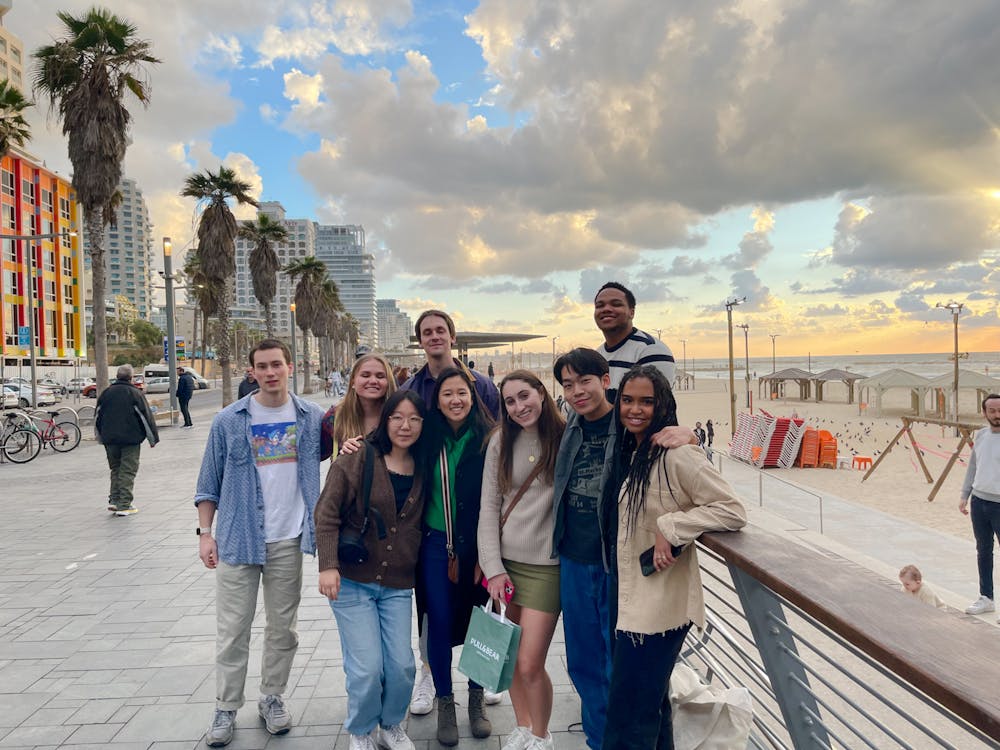This past Winter Session, 12 University students traveled to Israel as part of BIOL 1980: “HIV/AIDS in Diverse Settings: Focus on Israel.” The course examines HIV/AIDS in the context of Israel’s “diverse society, unique demographics and universal healthcare,” according to its description on Courses@Brown.
“There are two themes that are very important for me in my life and in my career,” said Professor of Medicine Rami Kantor, who taught the course. “The first is HIV. … I devoted my life to people living with HIV and research associated with them. The second theme is Israel.”
Kantor was born and raised in Israel, where he then attended medical school and completed his internal medicine residency.
Kantor explained that while the United States and Israel have different health care systems, the provision of HIV care is similar. The class focused on the differences in HIV care among specific populations, which revealed the unique and diverse needs of people in different settings, he said.
The class consisted of a three-day crash course on HIV in Providence and a 10-day trip to Israel visiting clinics and communities within Jerusalem, Tel Aviv, Haifa and Beersheba. During the final week of the course, held back on campus, students aggregated their experiences from the trip into a final paper.
“It was a truly eye-opening experience that put a lot of things into perspective beyond the course — beyond HIV, beyond medicine — putting a whole different outlook on life,” said Tal Chamdi ’23, a student who took the course.
Chamdi characterized the class as a “hidden gem,” describing it as a one-of-a-kind experience not offered anywhere else, enhanced by Kantor’s connections in Israel.
‘A lot to learn from our brothers and sisters abroad’
Ellis Clark ’23 recalled the interactions and stories from the communities the class visited as the most memorable moments from the course, relating them to his own sense of community and history.
“We met dozens of healthcare providers and learned very intimately about health care in Israel and in the U.S.,” Clark said. “Getting that experiential learning was so invaluable.”
“Being a queer man, I was really passionate about studying HIV because I feel like it is something that has affected queer communities and communities of color for decades,” he said. “We as a collective, young, queer population are losing a sense of that history, so it was important to me to really dig into it.”
The course has a “unique clinical exposure component” to it, said Natalie Chernysh ’24, one of the 12 students enrolled in the course. Students were exposed to different patient populations and provider types during their visits to hospitals and clinics.
“As somebody looking to go into medicine, it’s a big deal for me to gain that exposure because the U.S. is not ideal in any way,” Chernysh said of her decision to take the course. “There’s a lot to learn from our brothers and sisters abroad.”
Barriers to treatment and a ‘brighter future’
According to Joseph Garland, associate professor of medicine and clinician educator at the Alpert Medical School, many social and stigma-related barriers prevent HIV patients from receiving care.
In an email to The Herald, Garland described HIV as a chronic disease that requires long-term management. That management often proves expensive, while requiring medications that can be inaccessible.
While in Israel, Chernysh said she remembered an interaction with a man who traveled over an hour to Tel Aviv for treatment.
“He had to essentially hide his HIV diagnosis from his community,” Chernysh said.
“Both within the U.S. and globally, disparities in access, health literacy and social determinants of health remain major barriers to advancement” in HIV care, Garland wrote. “That is why courses like this are so important.”
Garland noted that there is not yet a cure for HIV — but he has hope for the future of treatment.
“We need the next generation to care as much as we do about people living with HIV,” Garland wrote, “and to keep pushing us forward toward a brighter future.”
Garland added that advancing the treatment and care of people living with HIV has been a rewarding experience. HIV research has substantial energy behind it today, and he hopes to have students from this course one day become his colleagues.
Kantor said BIOL 1980 was the “highlight of his year.”
“I love the personal interactions and relationships with the students as they go through this adventure with me,” he said.
Robayet Hossain is a Science and Research staff writer focusing on up-and-coming research and departmental updates. He is a first-generation sophomore from Bangladesh and graduated in New Orleans. He loves listening to a variety of music genres and reading horror stories just to have problems falling asleep.





